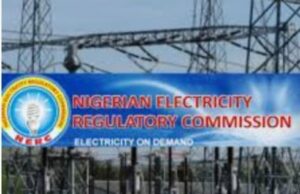Electricity Subsidy in Nigeria Expected to Reach ₦2.4 Trillion by Year-End – FG
Electricity Subsidy in Nigeria Expected to Reach ₦2.4 Trillion by Year-End – FG

The Nigerian Federal Government has announced that it will allocate approximately ₦2.4 trillion towards electricity subsidies by the end of this year. This figure was disclosed by Dr. Yusuf Ali, the Commissioner for Planning, Research, and Strategy at the Nigerian Electricity Regulatory Commission (NERC), during the PwC Annual Power and Utilities Roundtable in Lagos on Thursday.
Dr. Ali explained that the subsidy amount has been subject to fluctuations due to foreign exchange issues and tariff adjustments. He revealed that as of November, the subsidy had reached ₦1.9 trillion, with the monthly subsidy expected to rise to ₦260 billion by December.
“This ₦2.4 trillion is an annual projection, and it may change depending on the fluctuations in the monthly tariff rates,” Ali noted, further clarifying that the government regularly calculates the difference between the cost-reflective tariff and the approved tariff to determine the exact subsidy required each month.
The final subsidy amount will be confirmed by the end of the year, taking into account actual consumption patterns and tariff trends.
In his address, the Minister of Power, Adebayo Adelabu, represented by Chief Technical Adviser Adedayo Olowoniyi, shared details about the government’s efforts to address Nigeria’s electricity sector challenges. He highlighted the development of a draft Integrated National Electricity Policy in collaboration with PricewaterhouseCoopers (PwC), aimed at tackling critical issues in the power sector.
Adelabu emphasized that implementing cost-reflective tariffs is essential to attracting investment and ensuring the long-term sustainability of the sector. He argued, “A market that does not offer clear returns for investors will struggle to attract necessary funding.”
Despite the challenges in adopting cost-reflective tariffs, Adelabu stressed that they are vital for achieving 24-hour electricity supply and universal access. He also outlined the government’s ongoing initiatives under the Renewed Hope Agenda, such as the Electricity Act of 2023 and the Presidential Power Initiative, which is a collaboration with Siemens.
The minister also acknowledged the sector’s challenges, including infrastructure issues, vandalism, and inefficiencies across the electricity value chain. He noted that the Transmission Company of Nigeria (TCN) had spent nearly ₦10 billion over the past six months repairing damaged transmission towers.
“We are making progress, but the sector faces obstacles like frequent grid disturbances due to capacity shortages and persistent vandalism,” Adelabu said.
He added that the government’s initiatives focus on upgrading critical infrastructure, including substations and transmission and distribution networks. He credited PwC’s support in shaping the Integrated National Electricity Policy, which aims to enhance market discipline, improve energy delivery, and ensure subsidies are directed toward the most vulnerable populations.
Adelabu called on all stakeholders to take collective responsibility, stating, “Hope is not passive. We need to innovate and implement bold ideas to restore confidence and secure a sustainable energy future for all Nigerians.”
TRENDING SONGS
 Shock in Anambra: Bride Disappears Moments Before Wedding
Shock in Anambra: Bride Disappears Moments Before Wedding
 Nigerian Woman Returns ₦330 Million Accidentally Credited to Her Account
Nigerian Woman Returns ₦330 Million Accidentally Credited to Her Account
 APC Don Reach Morocco?’ VeryDarkMan Reacts to Seyi Tinubu Poster
APC Don Reach Morocco?’ VeryDarkMan Reacts to Seyi Tinubu Poster
 Bride Breaks Down in Tears as Wedding Meals Were Kept Secretly While Guests Go Home Hungry
Bride Breaks Down in Tears as Wedding Meals Were Kept Secretly While Guests Go Home Hungry
 Odogwu by Day, Robber by Night: How Marriage Joy Turned Into Tragedy
Odogwu by Day, Robber by Night: How Marriage Joy Turned Into Tragedy
 Nigerian Officials Allegedly Pocket N4–6B Weekly Through Smuggling Cartels at Seme–Badagry Border
Nigerian Officials Allegedly Pocket N4–6B Weekly Through Smuggling Cartels at Seme–Badagry Border
 Ahmad Yerima: Naval Officer to Face No Sanctions After Clash with Wike – Matawalle
Ahmad Yerima: Naval Officer to Face No Sanctions After Clash with Wike – Matawalle
 Trending Video: Muslim Man Joins Wife in Hallelujah Challenge ‘Dress Like Your Miracle’ Night
Trending Video: Muslim Man Joins Wife in Hallelujah Challenge ‘Dress Like Your Miracle’ Night
 Woman Seeks Advice as Late Brother’s Wife Refuses to Mourn Him Following His Death With Alleged Mistress
Woman Seeks Advice as Late Brother’s Wife Refuses to Mourn Him Following His Death With Alleged Mistress
 Nobody Cares About Fine Girls In The UK, I Miss Nigeria — Nigerian Lady Laments
Nobody Cares About Fine Girls In The UK, I Miss Nigeria — Nigerian Lady Laments
Share this post with your friends on ![]()













